HOW TO TRAIN YOUR PET MONKEY
AND INVENT YOUR WAY OUT OF THE APOCALYPSE
What I learned from depression, pain, and a lot of meditation.
Written by Mike Gilliland
The concept of bravery has come up in conversation a lot in recent weeks. I’ve been reconnecting with a friend and discussing life and our wins and losses over the years. We talked about what it feels like to fail and continue slogging on through the regret and fear that comes with failure. She told me that she thought my partner Euvie and I were brave for doing what we were doing over the last four years: traveling Southeast Asia, with no safety net, while building online startups. I’d never thought of it as brave (maybe a little stupid). But when I think back to who I was before I left Canada, the gigantic mess that I was in, and what I’ve been attempting to do lately, I can see her point. This is my story of how I hit rock bottom and used meditation to dig myself out the other side.
Into the muck
During my early twenties, in a short span of a couple of years, I was exposed to an absurd amount of tragedy. In one single month, I lost three friends to unrelated car accidents; one of them was my first girlfriend, another was an old soccer teammate, another was my long-time sparring partner in Karate. During that same month, I was laid off from my construction job, dumped from my relationship, evicted from my apartment, and as a result of the stress, was failing courses in college. Not to mention, a few years later another childhood friend whom I played in a band with jumped off a bridge. Yet another old friend died after he was tragically shot, and moments later killed in a car accident on the way to the hospital to treat the gunshot wound.
I’m actually leaving out a lot more of these types of stories for the sake of this article, but you get the idea. Every time I saw my hometown’s area code on my caller ID, I expected another one of those calls. I remember reading something in the newspaper one year about my cursed graduation class. For a while it seemed as though my old classmates and I had some crap superpower to find ourselves in emotionally traumatic situations.
On top of this, the 2008 economic crash had just happened, I was about 20k in debt from student loans, collecting welfare, and frantically looking for work. There were many times where I had to stretch a loaf of bread and a jar of peanut butter to last me a week.
For a long time I was depressed and contemplating life and death constantly. I would get sick every few weeks, I suffered from stress shakes and twitches, and I couldn’t sleep — sometimes for days. I felt guilty, because the most difficult part of everything I was going through was not the death of my friends, or the loneliness, the courses I was failing, or my relationships which were falling apart, it was my income situation. Growing debt provided a constant debilitating stress and anxiety. I had no idea how I was going to escape my situation, and every day seemed to be getting worse than the last one. Suicide was a sort of peripheral fantasy, one I would think about any time I drove a car. Just one little twitch of my hand on the steering wheel would send me plowing head-on into a concrete wall or oncoming traffic and simultaneously solve all my problems at once.
Digging up
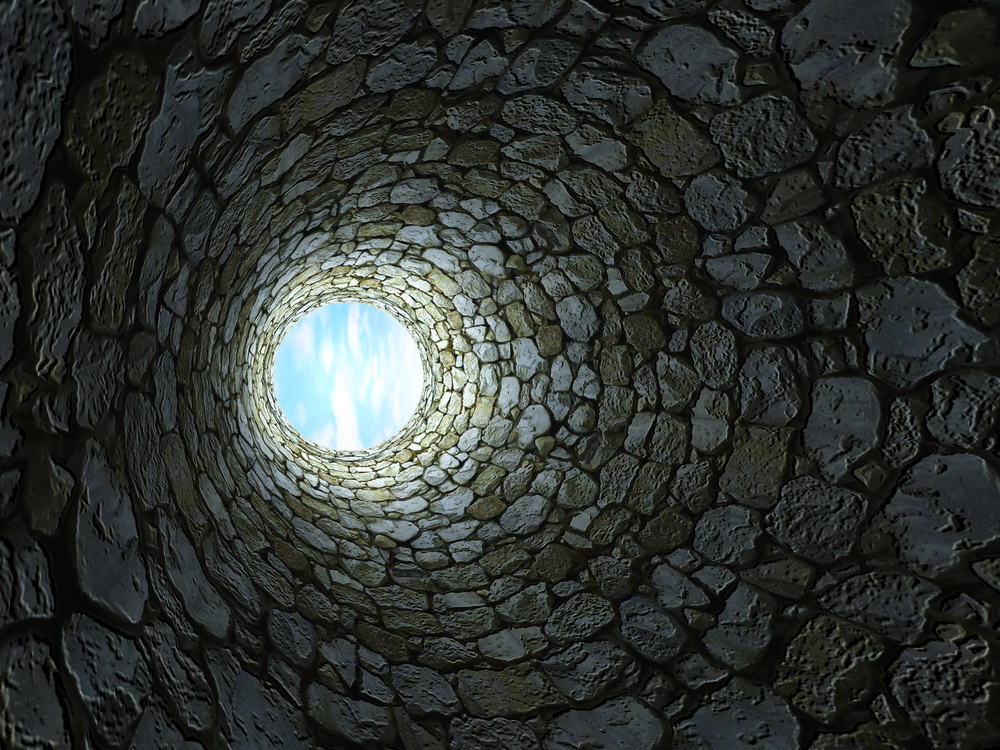 One day something broke. I was laying in bed, eyes bugged, ladened with the usual stress, when I decided to stop avoiding my thoughts and dive straight into them. I looked at my life in context of the worst disasters I could think up: “At least I’m not in Auschwitz” I thought. “At least I’m not schizophrenic and addicted to heroin”. I laid there intensely focusing on the worst things that could still happen in my life. I could botch a suicide attempt and have to live in constant pain and eat through a feeding tube, my whole family could be murdered, a nuclear bomb could be dropped on my city, killing everyone I cared about. Just insane and improbable things that would feel worse than what I was going through at the time. I started visualizing my own death in vivid detail, imagining what it would feel like to die by torture, suffocation, burning, or being crushed.
One day something broke. I was laying in bed, eyes bugged, ladened with the usual stress, when I decided to stop avoiding my thoughts and dive straight into them. I looked at my life in context of the worst disasters I could think up: “At least I’m not in Auschwitz” I thought. “At least I’m not schizophrenic and addicted to heroin”. I laid there intensely focusing on the worst things that could still happen in my life. I could botch a suicide attempt and have to live in constant pain and eat through a feeding tube, my whole family could be murdered, a nuclear bomb could be dropped on my city, killing everyone I cared about. Just insane and improbable things that would feel worse than what I was going through at the time. I started visualizing my own death in vivid detail, imagining what it would feel like to die by torture, suffocation, burning, or being crushed.
This really doesn’t sound healthy, does it? But, after making a daily effort to saturate myself with fear and despair, my outlook on life began to change. Things weren’t yet getting better, but skipping a meal or two because I couldn’t afford it was easy when I’d spent an hour the previous day visualizing having to saw my own arm off. Sure, things weren’t great, but they could still get a lot worse. The absurdity of my morbid visualizations put my real life into context. I started to feel better and think more clearly about my situation. I realized that my pain wasn’t created from all of these external events, it was created by my thoughts and judgements about them. I’d been comparing myself to my own idealized, happy white-boy, shiny and successful avatar. The one who aspired to become a rockstar millionaire and wrote in his yearbook that he “looked forward to winning a grammy”. LOL. That kid did not know about the difficulty and fragility of life.
A degree from dishwashing
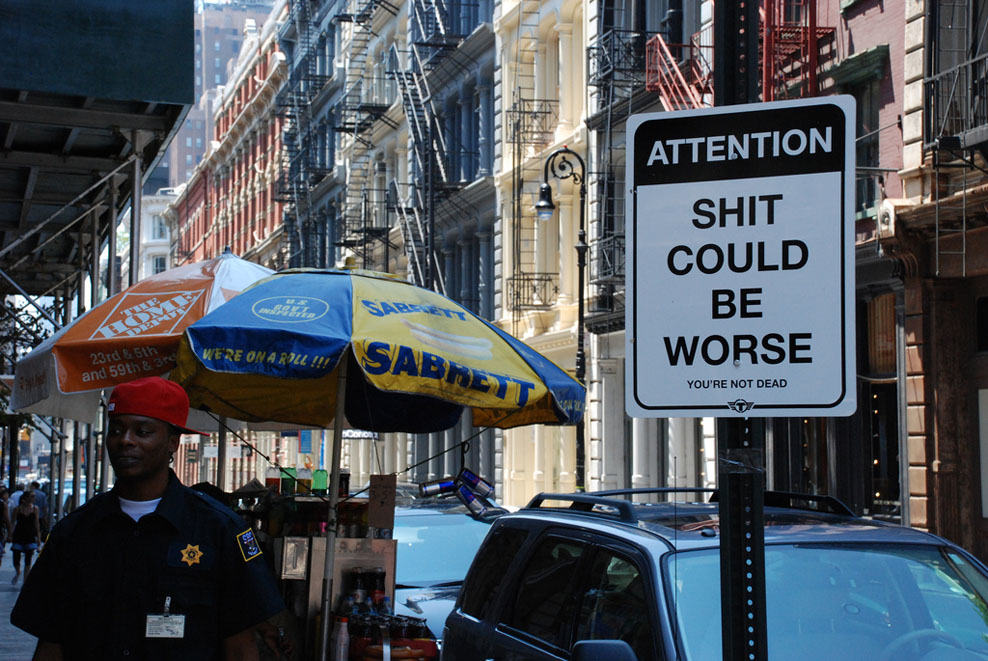 Eventually, as my outlook slowly improved, I found a job washing dishes and began to listen to audiobooks while I worked. A book called The Power of Now made its way into my headphones. This book, by Eckhart Tolle, is a story about the author’s journey from suicidal depression to enlightenment through meditation. In it, Eckhart talks about the importance of letting go of all past and future events, and focusing solely on the present moment; something I did so rarely I could barely conceive of it. “What do you mean there is life outside of worry, planning, and visualizing imminent destruction?”
Eventually, as my outlook slowly improved, I found a job washing dishes and began to listen to audiobooks while I worked. A book called The Power of Now made its way into my headphones. This book, by Eckhart Tolle, is a story about the author’s journey from suicidal depression to enlightenment through meditation. In it, Eckhart talks about the importance of letting go of all past and future events, and focusing solely on the present moment; something I did so rarely I could barely conceive of it. “What do you mean there is life outside of worry, planning, and visualizing imminent destruction?”
I listened to this book more than a dozen times in the span of a year, and really began to integrate meditation into my life. Over time, that gigantic pit of nervousness in my chest began to lose its hold. I began to monitor my body and my thoughts and think of them as separate from me. I slowly came to recognize myself as this conscious entity existing in an outside-and-elevated perspective from my mind and my thoughts. I chanted the mantra in my head: “I am not my thoughts, I am not my emotions, I am not the events of my life”.
I pitied this paranoid, scheming, needy monkey known as Mike Gilliland. I started questioning who I was at the core. If I could separate myself from my identity and my thoughts, who the hell was left? Why the hell was I here? This line of questioning caused me to gradually cut away the layers of my identity and who I once thought I was. Every time I asked myself “who am I?” and the answer came back “not that”, I felt closer to the truth. I began to stop fearing my own death because I no longer identified as the monkey. True or not, this disassociation made being courageous a lot easier.
Training the pet monkey
Around this time I began treating the monkey (my former self) as a pet. I trained it. I worked on it. I viewed it as my vehicle, my tool, and I would be damned to see it behaving or performing badly. I started reading more books on self development and business, and one day I picked up this book called The Four Hour Workweek by Timothy Ferriss. This book gave me a roadmap for escaping the dishwashing job, and the crushing debt. It described this “location independent entrepreneur”, a person who works online, automates most areas of their business, and travels for pleasure. This was what I wanted. This was exactly it. Freedom. If I could just figure out this online business thing, I could escape the job I hated, the city I couldn’t afford, and the lifestyle that led to nowhere. Although I didn’t know what I would do yet, the idea had burned itself into my mind.
Things continued to change. My ideas and goals became this “fuck it, let’s do it” sort of thing instead of an exercise in listing ways I would fail. I had more focus and intention. I attended more to what I wanted because my mind wasn’t so preoccupied with what I didn’t want. I began visualizing the outcomes of my goals, and one by one they started happening — whether by focused planning, concentrated will and effort, or sheer luck and synchronicity.
Band aid
Later that year, I met a group of friends who became extremely close to me. They played in a metal band, which happened to be one of my favourites in Canada. They lived in a band house and at some point needed another roommate, so I moved in. I was starting to freelance as a recording engineer, and ended up recording one of their albums. This year ended up being one of the best years of my life. These people modelled what functional, happy, and intelligent people were supposed to look like. They liked me and knew I was going through some rough times, so they looked after me, loaned me cash when couldn’t afford rent, took me on tours with them, and even bought me a ticket to Sasquatch Music Festival one year when I couldn’t afford to buy one myself. They became closer to me than anyone I ever had in my life, and that gave me confidence that I actually could be likeable. Soon after I met my wife, Euvie, a Russian immigrant who was going through a similar situation to my own: struggling with a lot of personal demons, bailing herself out of debt, and attempting to reinvent herself.
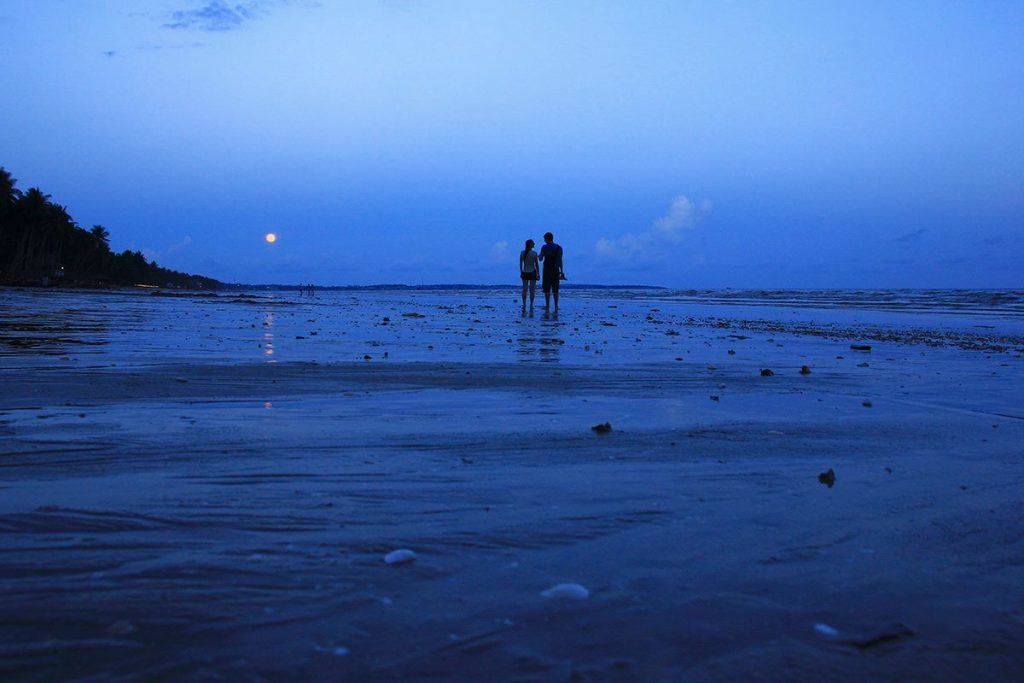 We fell in love almost instantly, and began working together to build something that would give us the opportunity to think bigger and escape from our material difficulties. I showed her The Four Hour Workweek and soon after we started building a business together. We began designing websites with the intention to one day become location independent. About six months later, we got our first recurring client. Thats when we booked our one way ticket to Thailand and planned to travel indefinitely while working online.
We fell in love almost instantly, and began working together to build something that would give us the opportunity to think bigger and escape from our material difficulties. I showed her The Four Hour Workweek and soon after we started building a business together. We began designing websites with the intention to one day become location independent. About six months later, we got our first recurring client. Thats when we booked our one way ticket to Thailand and planned to travel indefinitely while working online.
After a year of traveling, working, and meeting so many other misfits and nomads, we began to gain a new perspective on work, life, and Western culture. We started to gain some of our freedom and time back. Although our income hadn’t really changed, our expenses had dramatically dropped by the fact that we were living in countries with a lower cost of living. This allowed us to start reading more books, contemplate our lives, and navel gaze about technology and the future. This is how we decided to start our podcast, Future Thinkers. We had been discussing consciousness and the future of humanity and reading so many books on the subject, that we wanted to start recording our discussions.
Into The Deep
During this time, Euvie and I were taking meditation a lot more seriously. Twice we visited a 7-day silent meditation retreat in the jungles of Thailand. My new focus was on turning the dial down on my mental chatter and being present as much as I was able to. I was spending more and more time intentionally deconstructing every one of my emotions and unconscious reactions in daily life. Whenever the monkey had a moment of anger, frustration, sadness, or worry, I was there watching and studying it.
It was at this time that I came across the concept of enlightenment. The definition was simple to understand but difficult to know: self knowledge, mental and emotional control and awareness, freedom from fear. I thought about and studied enlightenment for months, and began to get a grasp on the idea.
3rd Person Mode
During our travels to Portugal in 2015 I was meditating twice per day and experimenting with new meditation techniques. I began having frequent out of body experiences, like I was playing a game in 3rd person mode. I tried to ignore them, but the experiences would happen while I was walking outside. It was as if I was the camera, and the body below me was my fictional character — a wide-eyed ape, clumsily occupying its collection of meat particles, exploring a blue marble of a spaceship that was rocketing through the galaxy. Somehow after years of cutting away my identity, it was as if I was cutting away my own brain as the seat of my own consciousness. I don’t necessarily believe this is the case, but it was interesting to experience.
I started noticing a lot more synchronicities in my life too. I paid attention to them, even sometimes playing and experimenting with them. I picked up a book called Synchronicity by Kirby Surprise and was happy to learn that there were scientists out there who were exploring and experimenting with the reality of synchronicity, enlightenment, and non-local awareness. I also read The Field by Lynne Mctaggart which detailed the hundreds of experiments in psychic phenomena. A lot of people were playing with the idea that consciousness may be, if only partly, non-local and not not fully originating from our plane of existence.
I was now testing and experimenting with my reality and my own mind on a daily basis, visualizing events and then experiencing them within hours with little to no effort. I read several books on cognition, neuroscience, psychology, machine learning, quantum mechanics, and artificial intelligence. My isolation from Western culture and my partnership with Euvie helped to dissolve the cultural operating systems that had been bashed into my head for years from the media and my upbringing in The West. I didn’t need to believe anything one way or another. I could still be scientific, but I wasn’t attached to any results. Evidence was still the high priority in my investigations of the mind, but I was comfortable with balancing it with my own personal experiences.
Life wasn’t so binary anymore.
Lessons from leaning in
Most people define bravery as an absence of fear and a drive to take heroic action. To me, bravery is pain tolerance. It’s weightlifting. Bravery is comfort with discomfort. You have the option of focusing on your fears and pains and making them worse, or you can place your attention onto things that bear fruit. A strong will and bravery muscle makes all the difference.
Meditation, stress, and depression have taught me that the pain caused by the events of our daily lives fits within a bandwidth. There is a limit to the emotions that the human mind is capable of experiencing. At some point, you hit a wall where you actually cannot feel worse. I know because I hit that wall nearly halfway through my terrible month, while the tragic events kept piling on. But I didn’t feel any worse. Nearly every death or event since then has had the volume turned way down on it.
I think that’s the point — if you use the right techniques, you can start to heal and build a much stronger foundation of personality and resilience. There is a limit to the pain that our nerve endings and neurotransmitters are capable of sending. For most people, numbing their pain is the only conceivable option for dealing with it, but this leaves them weak and maladapted. It leaves a lot of scar tissue. For those who practice meditation, lift the weights, do the “heavy cutting” of the mind, there are more choices. In the limits of our reality are inherent limits to our suffering. With practice you can choose to feel that pain to its limits, thereby strengthening yourself, or selectively detach yourself from the monkey that experiences the suffering. Poor little guy.
Instead of running away from pain, I pointed my nose into it, experienced it fully, and deepened my tolerance to it. Like weight training or cold exposure, I deepened my mind’s capacity to deal with and process difficult events, thoughts, and emotions. I don’t think it’s necessary to go through real tragedy to strengthen yourself; visualizing it can provide the same benefits.
Bear in mind, I didn’t kill my emotions. More accurately, I found a way to choose which emotions to experience and respond to. If the emotion serves me, or allows me to build social connections, I let it pass through the gate. If it confuses, complicates, or disables me, I let it go if I can, or point my attention into it and let the monkey in my head thrash around until it gets tired. In truth, this type of meditation practice has made me a more empathetic, resilient, and adapted person. I still have a long way to go, but I can see the path I’m on.
Facing reality
We’re about to enter a radically different paradigm on this Earth. Yes, that’s been said a thousand times, but if you do the math, there are some clear indications that we’re approaching a cliff. The Internet, mobile smart phones, self driving cars, virtual reality, wearable tech, artificial intelligence, economic collapse, climate change, terrorism, famine are all either here already on just on the horizon. While I’m not so extreme as to predict a total global economic, environmental, and agricultural meltdown in the coming decade (I may just be naive), I do completely agree with him that we need to start preparing for the worst case.
Anyone with open eyes can see the signs of a radical shift, and I do expect the situation on our planet to get worse before it gets better. Let’s pick just one of these new technologies: self driving cars. The transport industry directly employs more than 10 million people in the US. Self driving cars will put a lot of people out of work. Imagine what happens when that size of a workforce is unemployed and on the street. Think they’ll riot? Think that it’ll have a trickle-down effect? We’re not going to “more jobs” our way out of that situation, we’re going to need to reinvent the whole system for how we feed and shelter people, and that’s just one area of a brand new world of tech innovation.
We live in dangerous times where stupid and fanatical people are getting access to technologies that could cripple or destroy life on this planet. We’re going to need our rational heads to deal with that. We live in a society that is unaware that a system that indicates Donald Trump is one of the best candidates to lead a global superpower is probably not functioning well. Most people are woefully unprepared emotionally, mentally, and economically for what is just on the horizon. Our new generations of inventors and entrepreneurs are going to need a level of emotional and mental stability and resilience that dwarfs anything that has been needed before. Our inventors are going to need to write apps and build machines that solve the world’s problems while the food supply dwindles, the climate collapses, and the “zombies” are at the door.
Still optimistic
All of that said, I’m still an optimist at my core. No, seriously. I see the new technologies that very smart young people are inventing and I have hope that at some point we’ll be able to invent our way out of our imminent future dystopia. Who knows, maybe some AI, Elon Musk 2.0, or alien race could swoop in and bail us out. But whoever those architects of our future are, they’re going to need to recognize and get comfortable with the fact that no matter what we invent, no matter what events occur, death is the final step for all of us – unless of course we figure out a way to become immortal through transhumanism.
The knowledge that we all die eventually, combined with the freedom from the monkey mind, can turn this reality into a sort of playground for us. Even as the walls are closing in. We face a chance of solving our global problems through deep self awareness and the mature use of technology, or we could destroy it all in one badly programmed nano replicator. Those are the stakes that I hope more people can grasp and cope with in the near future. We have this amazing gift to sit there and play with the layers of the mind. We can visualize and create anything we can imagine. We can do the mental weightlifting required to face and solve any type of problem that the future will throw at us. We can be prepared, undisturbed, and ready to be of service to ourselves and others. And what’s it going to take? Probably not much more than an hour a day of some serious emotional work, focus, awareness, and identity cutting.
And the reward? The monkey behaves, creative flow states come easily, solutions become clearer, and the world becomes a lot more enjoyable, funny, and beautiful.
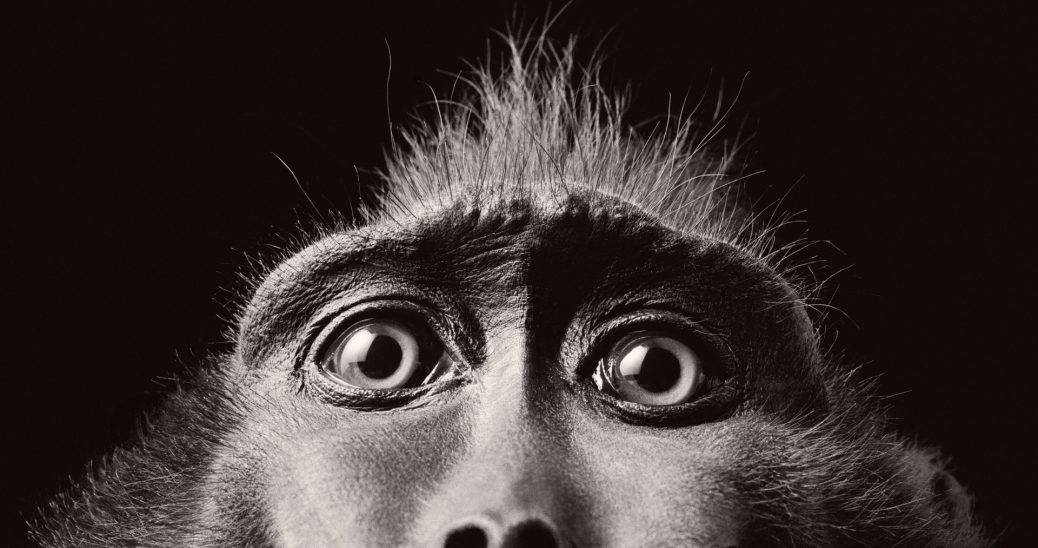
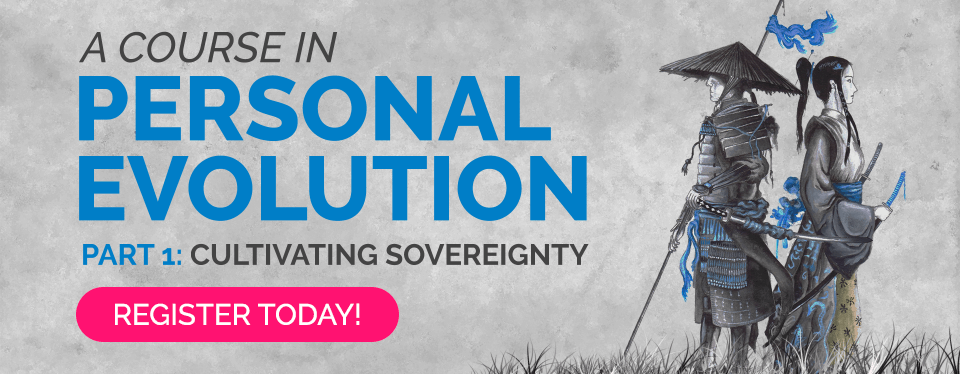
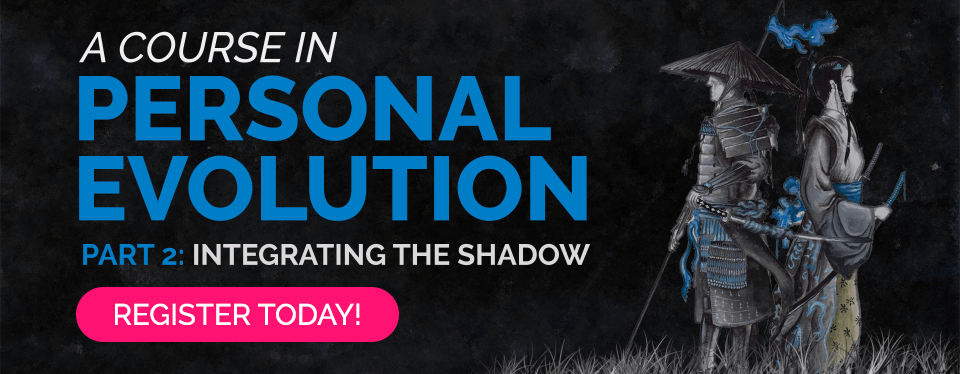
Comments are closed.
Wonderful article, Speaking about the monkey, have you ever heard about a book called Dragon’s play by Charles Belyea? There’s a chapter in the book reflecting on the monkey mind in a very clear way.
I actually heard about the book from Vinay Gupta, in one of his podcast appearances.
Any ways, keep up the good work, it will be interesting to see what kind of splash your app makes in the human consciousness (:
Hey! Thanks for the comment. No, haven’t heard of it but it’s now on my list.
Nice article.
I would be interested to see your complete list of recommended books. Is that already available somewhere on the site?
Yes, it’s here and we update it every couple of months.
Not sure how I missed that. Thank you :-)
Great read, and thank you for the podcasts. My monkey got scared reading this that it might have to strap down and get to work. It’ll probably go stress eat soon.
The consistent theme in all the best descriptions I’ve seen of meditation (including this one, and Vinay’s) is of peeling away or descending through successive “layers” of awareness towards the truth of one’s Self. This serves as both a promise and a warning for us monkey-wrestlers — that distractions abound but practice bears fruit.
I was reminded of an essay I read years ago at a party — because doesn’t everyone read at parties? It was “Psychology, Reality, and Consciousness” by Daniel Goleman, in the anthology “Paths Beyond Ego”. The details all escape me, but I remember feeling awe as Goleman clearly walked me through successive layers of meditation to the paradox at the creamy center. Might be hard to find but if you can, it should be a treat. Fruit? Candy? Treats? Yeah the monkey is definitely hungry.
Keep up the good work!
Wow, one of the most radical thinking articles I read in a long time. Thank you and I am happy that you made it out of the hole.
Also, it is an eye opener to possibilities.
While I will take some time to make my mind up about what you propose, one question arises: “Isn’t deliberate exposure to extreme psychological pain, sort of unloving towards the own system?”. The “brutal” word cutting machinery for the app underlines this IMO. Do we need to butcher the monkey mind to have our inner peace or are there less violent ways? I would be curious to know you think about the aspect of psychological violence. Thanks in case you reply.